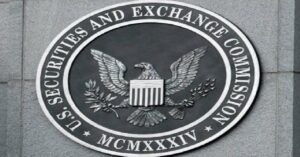
Hurricane ICO
Always hip with the times, the SEC just unleashed its own hurricane, Icarus (ICO for short). Instead of dowsing with rain, Icarus threatens to burn those seeking crypto gold.
Icarus has caused refugee blockchain companies to scurry for shelter. Although forecasters had predicted the storm for months, would-be ICOs reeled at the inferno.
DAO shattered the calm seas
The SEC conceived Icarus in a summer report on the now-infamous DAO disaster. DAO was a tokenized universe allowing crowd investors to participate, direct, and profit from decentralized company projects. Hackers cracked the code and ruined the fun. A year later, the SEC claimed DAO tokens were securities subject to registration. This meant the ICO market, topping $2 billion this year alone is on ice.
Some blockchain companies are now sheltering under the SEC’s umbrella. Filecoin a red hot ICO producing upwards of $200 million has filed two Reg D notices; one for the presale to venture capitalists and the second for the crowdsale using a “SAFT” based on the SAFE popular with Reg CF.
Defiant ICOs are facing the storm
Others have ignored the warnings and will try to weather the storm. BitBounce’s Credo has plowed ahead with ICO plans sans SEC registration claiming Credo’s token don’t meet Howey-test markers. If wrong it could endure years of SEC haggling before final resolution. The SEC has already begun to crack down on other ICO-related concerns including First Bitcoin CapitalCorp., CIAO Group, Strategic Global, and Sunshine Capital.
Compliant ICOs will follow private exemptions
For those wishing to avoid any future SEC-induced storms, three possibilities emerge:
- Reg D: Perhaps the easiest because of the small regulatory burden and lack of limits, Reg D requires no upfront SEC compliance. Companies only notify the agency after the raise. Drawbacks include a verification process for accredited investors and a lack of liquidity, as investors must hold the securities for 90 days.
- Reg CF: As currently configured, Reg CF is not ICO friendly because of its $1.07M one-year limit. But companies may stack Reg CF with Reg D to capture unaccredited investors. Reg CFers, however, must hold the securities even longer, one year, unless sold to accredited investors among other exceptions.
- Reg A+: This may be the most interesting. The “mini-IPO” option requires more upfront costs as the SEC must pre-qualify the offering and limits exist based on investor income. But once live the ceiling is $50M and even better instruments are instantly tradeable making the secondary market most like the wild-West ICO of yore (this summer).
The SEC is still sorting the ICO market and asking for input. But the commission should forecast calm seas and a light regulatory burden if the US is to remain competitive in this emerging securities market.
Russia-based platforms could gobble significant ICO infrastructure and innovation. For instance, Waves recently announced users can deposit US dollars for token backed 100% by dollar reserves for its ICO offerings. It also partnered with Deloitte CIS for ICO and customized blockchain solutions.
The SEC will decide whether US-based blockchain companies and investors are in for clear sailing or in the eye of the storm.
By Jossey PLLC








